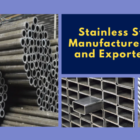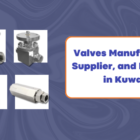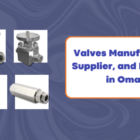Mcneil Instrument is a leading manufacturer, supplier, and exporter of high-quality Stainless Steel Tubes in India. Our stainless steel tubes are renowned for their exceptional corrosion resistance, durability, and hygienic properties. We offer a wide range of stainless steel tubes to meet the diverse needs of various industries.
What are Stainless Steel Tubes?
Stainless steel tubes are pipes made of stainless steel, an alloy of steel containing a minimum of 10.5% chromium. This chromium content creates a protective oxide layer on the surface of the steel, making it highly resistant to corrosion.
Types of Stainless Steel Tube by Mcneil Instruments
Mcneil Instruments offers a comprehensive range of stainless steel tubes, each catering to specific industrial demands. Below is a detailed look at the products we manufacture:
- Alloy Steel Tube: Tube made from steel alloyed with other elements for enhanced properties.
- Hastelloy Tube: Tube made from a high-performance nickel alloy known for its exceptional corrosion and heat resistance.
- Inconel Tube: Tube made from a nickel-chromium alloy offering high strength, oxidation, and corrosion resistance at high temperatures.
- Stainless Steel Tube: Tube made from a steel alloy containing chromium, providing excellent corrosion resistance.
- Stainless Steel Seamless Tube: Stainless steel tube manufactured without any welding or joining, offering superior strength and pressure resistance.
- Copper Tube: Tube made from copper, known for its excellent thermal and electrical conductivity.
- 310 Stainless Steel Tube: Tube made from a high-temperature resistant stainless steel alloy.
- 317L Stainless Steel Tube: Tube made from a molybdenum-containing stainless steel with enhanced corrosion resistance.
- 904L Stainless Steel Tube: Tube made from a super austenitic stainless steel offering excellent resistance to pitting and crevice corrosion.
- ASME SA 213 TP 304 Stainless Steel Tube: Seamless stainless steel tube conforming to ASME standards, commonly used in high-temperature applications.
- ASME SA 213 TP 304L Stainless Steel Tube: Low-carbon version of 304 stainless steel Tube, offering improved weldability.
- ASME SA 249 TP 304 Welded Stainless Steel Tube: Welded stainless steel tube conforming to ASME standards.
- ASME SA 268 TP 410 Stainless Steel Tube: Seamless stainless steel Tube designed for high-temperature service.
- ASME SA213 TP 316L Stainless Steel Tube: Low-carbon version of 316 stainless steel tube for improved corrosion resistance.
- ASME SA213 TP 321 Stainless Steel Tube: Titanium-stabilized stainless steel Tube for high-temperature service.
- ASME SA213 TP 316 Stainless Steel Tube: Molybdenum-containing stainless steel tube with enhanced corrosion resistance.
- ASTM A511 Stainless Steel Seamless Tube: Seamless stainless steel Tube conforming to ASTM standards.
- ASTM A213 TP 347 Stainless Steel Seamless Tube: Niobium-stabilized stainless steel seamless Tube for high-temperature applications.
- ASTM A213 Stainless Steel 316ti Seamless Tube: Titanium-stabilized 316 stainless steel seamless tube.
- ASTM A270 Sanitary Tube: Stainless steel Tube used in hygienic applications, such as food and beverage processing.
- ASTM A554 Stainless Steel Square Tube: Square-shaped stainless steel tube for structural and architectural applications.
- ASTM A269 Stainless Steel Tube: Seamless and welded austenitic stainless steel Tube for general service.
- Stainless Steel Boiler Tube: Stainless steel tube specifically designed for use in boilers.
- Stainless Steel Capillary Tube: Small-diameter stainless steel tube used for precise fluid transfer.
- Stainless Steel Condenser Tubes: Stainless steel tubes used in condensers for heat exchange.
- Stainless Steel Cold Drawn Tube: Stainless steel tube that has been cold drawn to improve its mechanical properties.
- Stainless Steel Coil Tube: Long, continuous length of stainless steel Tube wound into a coil.
- Stainless Steel Heat Exchanger Tube: Stainless steel tube used in heat exchangers for efficient heat transfer.
- Stainless Steel Corrugated Tube: Stainless steel tube with a corrugated or rippled surface for increased flexibility and surface area.
- Stainless Steel Instrumentation Tube: Small-diameter stainless steel Tube used for connecting instruments in various industrial processes.
- Stainless Steel Rectangular Tube: Rectangular-shaped stainless steel Tube for structural and architectural purposes.
Stainless Steel Tube Grades
Below is a table outlining some of the most common stainless steel tube grades and their unique properties:
| Grade | Key Features | Applications |
| 304 | Excellent corrosion resistance, affordable | Food processing, automotive, general |
| 304L | Low carbon, great for welding | Chemical processing, welded structures |
| 310 | High-temperature resistance, oxidation-safe | Furnace parts, high-temp applications |
| 316 | Superior chloride resistance | Marine, chemical, pharmaceutical |
| 316L | Low carbon version of 316, for welding | Marine, chemical, construction |
| 321 | Titanium stabilized, heat-resistant | Aerospace, heat exchangers |
| 347 | Niobium stabilized, handles extreme heat | Thermal processing, power plants |
| 904L | High alloy, acid-resistant | Acidic environments, chemical storage |
Tube Manufacturing Processes of Mcneil Instruments
Stainless steel tubes are manufactured through various methods to meet specific industry requirements. Here’s a flowchart showcasing the common processes involved:
Raw Material Selection → Tube Forming (Seamless/Welded) → Heat Treatment → Sizing and Shaping → Surface Treatment (Polishing/Passivation) → Quality Inspection → Packaging
Tube Standards and Certifications
To ensure the highest quality, Mcneil Instruments adheres to international standards and certifications for stainless steel Tube. Some of the key standards include:
| Standard/Certification | Description |
| ASTM A312 | Standard specification for seamless and welded austenitic stainless steel pipes. |
| SA213 | Standard for seamless ferritic and austenitic alloy steel boiler, superheater, and heat-exchanger tubes. |
| A270 | Standard for sanitary Tube in food and beverage industries. |
| ISO 9001 | Quality management system certification, ensuring consistent product quality. |
Key Organizations Involved in Setting Stainless Steel Tube Standards
Several global organizations are responsible for creating and maintaining standards for stainless steel tubes. These include:
| Organization | Standard | Description |
| ASTM | ASTM A269 | Specifies seamless and welded stainless steel Tube for general service. |
| ASME | ASME Standards | Regulates stainless steel pipes and tubes for pressure applications in critical industries like oil and gas. |
| ISO | ISO 9001, ISO 1127 | ISO 9001 ensures quality management, while ISO 1127 defines dimensional standards for stainless steel tubes. |
| EN Standards | EN 10216, EN 10217 | Defines specifications for seamless and welded stainless steel tubes in high-pressure applications. |
| JIS Standards | JIS G 3459, JIS G 3461 | Governs the quality and dimensions of stainless steel tubes in Japan, mainly for pressure vessels and boilers. |
These organizations develop guidelines for material properties, testing methods, and dimensional tolerances, ensuring that products meet industry-specific requirements.
Mechanical Properties and Chemical Composition
Stainless steel tubes are valued for their tensile strength, yield strength, and hardness. These properties are critical when selecting materials for high-stress or high-temperature environments. The chemical composition of stainless steel, particularly the chromium and nickel content, directly influences its corrosion resistance and mechanical properties.
Testing and Inspection
Mcneil Instruments ensures that all products undergo comprehensive testing to meet industry standards. Key testing methods include:
- Non-destructive Testing: Techniques such as ultrasonic testing, eddy current testing, and radiographic testing help detect internal flaws without damaging the material.
- Destructive Testing: Tests like tensile testing and impact testing measure the mechanical strength and durability of stainless steel tubes.
Additionally, third-party certifications and inspections are conducted to verify compliance with the relevant standards.
Regulatory Compliance
To ensure compliance with stainless steel tube regulations, manufacturers like Mcneil Instruments adhere to the following best practices:
- Regular inspections and testing
- Third-party certifications for critical applications
- Ongoing education and training for employees to stay updated on changing regulations
Failure to comply with standards can lead to severe consequences, including product failure, safety risks, and legal actions. Maintaining regulatory compliance ensures product safety and long-term reliability.
Conclusion
Stainless steel tubes are a vital component in modern industry, offering unmatched versatility, durability, and performance. At Mcneil Instruments, we are committed to delivering top-quality stainless steel tubes that meet your precise needs. From high-temperature resistant 310 stainless steel to corrosion-resistant 316 and versatile 304, our product line is crafted to cater to every requirement.
Contact Mcneil Instrument today to learn more about our stainless steel tube offerings and how we can assist you with your specific needs.






